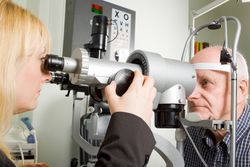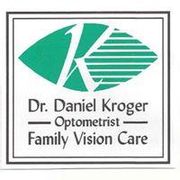
A cataract is a fairly common eye disease characterized by the clouding of the lens. While the severity of this condition can vary, it’s an issue that everyone should address if they develop symptoms. To help raise awareness about this ocular disease, Daniel J. Kroger OD—a leading eye doctor in West Chester, OH—answers a few common questions patients have about cataracts.
5 FAQ About Cataracts
What Causes Cataracts?
Consisting of water and protein, the lens is a thin part of the eye positioned behind the iris that helps focus light to produce clear images. However, when the proteins begin to clump together, they can cloud the lens and make it more difficult to see clearly.
How Do You Know if You Have Them?
Cataracts develop slowly over time and aren’t always easy to detect right away. Blurry vision and a visible clouding of the eye are some of the first signs that people notice. If you’re developing the condition, you might also have poor vision at night or see a halo glare around lights.
How Are Cataracts Detected?
 If you develop symptoms, an eye doctor can perform a series of tests to determine if a cataract is present. A specialist will typically assess your risk by having you read a standard vision chart and then performing a dilated eye exam. The doctor might also perform a slit lamp exam to focus light on the cornea and observe potential abnormalities within the lens.
If you develop symptoms, an eye doctor can perform a series of tests to determine if a cataract is present. A specialist will typically assess your risk by having you read a standard vision chart and then performing a dilated eye exam. The doctor might also perform a slit lamp exam to focus light on the cornea and observe potential abnormalities within the lens.
Who Is at Risk?
While any person can develop cataracts, the problem mostly affects adults over the age of 60. The National Eye Institute estimates that nearly half of Americans over 80 years old have some form of the disease. Apart from age, other potential risk factors include having diabetes and smoking cigarettes. In some cases, ultraviolet light exposure can also contribute to cataract development.
How Do You Treat Cataracts?
If a cataract is small and not causing any symptoms, you might not need treatment right away. However, if the condition is contributing to vision problems, your doctor might recommend wearing prescription eyeglasses to sharpen sight and reduce glare. In more advanced cases, the cataract could be surgically removed and replaced with an artificial lens.
If you’re experiencing blurriness related to cataracts or any other type of vision problem, Daniel J. Kroger OD can provide an in-depth exam to pinpoint the cause of the issue. If cataracts are present, the specialist can introduce you to high-quality eyewear to improve your sight. To learn more about the comprehensive services this West Chester eye care provider offers, visit the practice online, or call (513) 777-3936 to schedule an appointment.
About the Business
Have a question? Ask the experts!
Send your question

